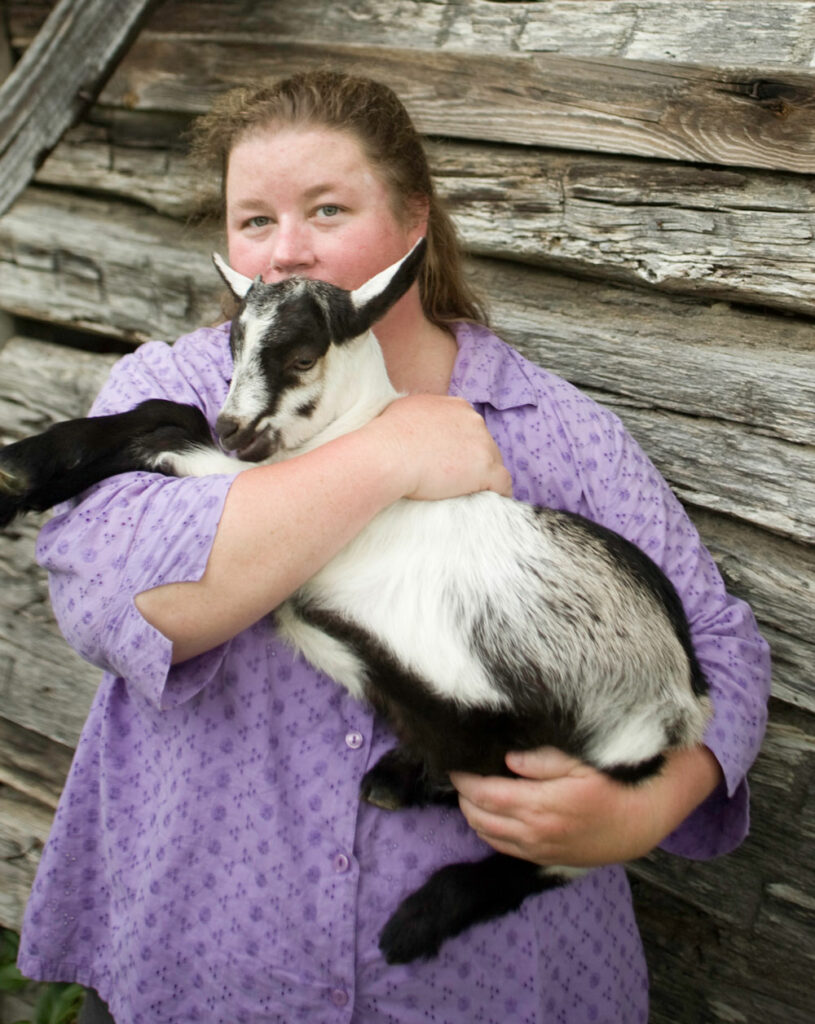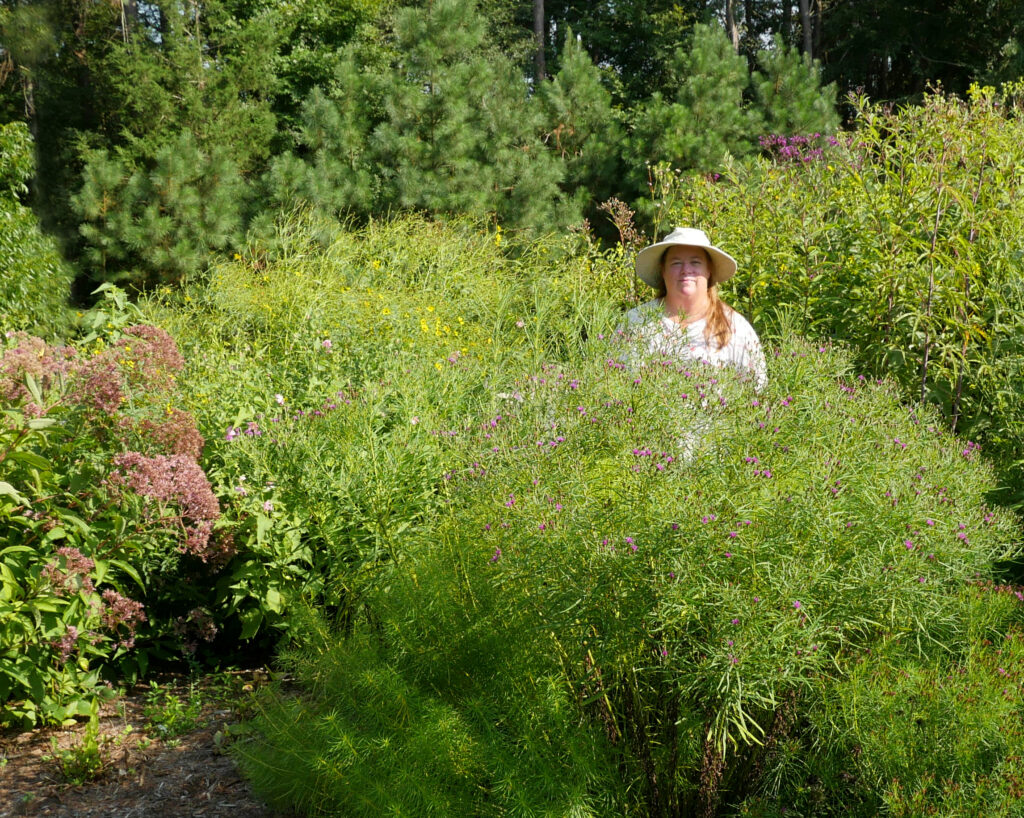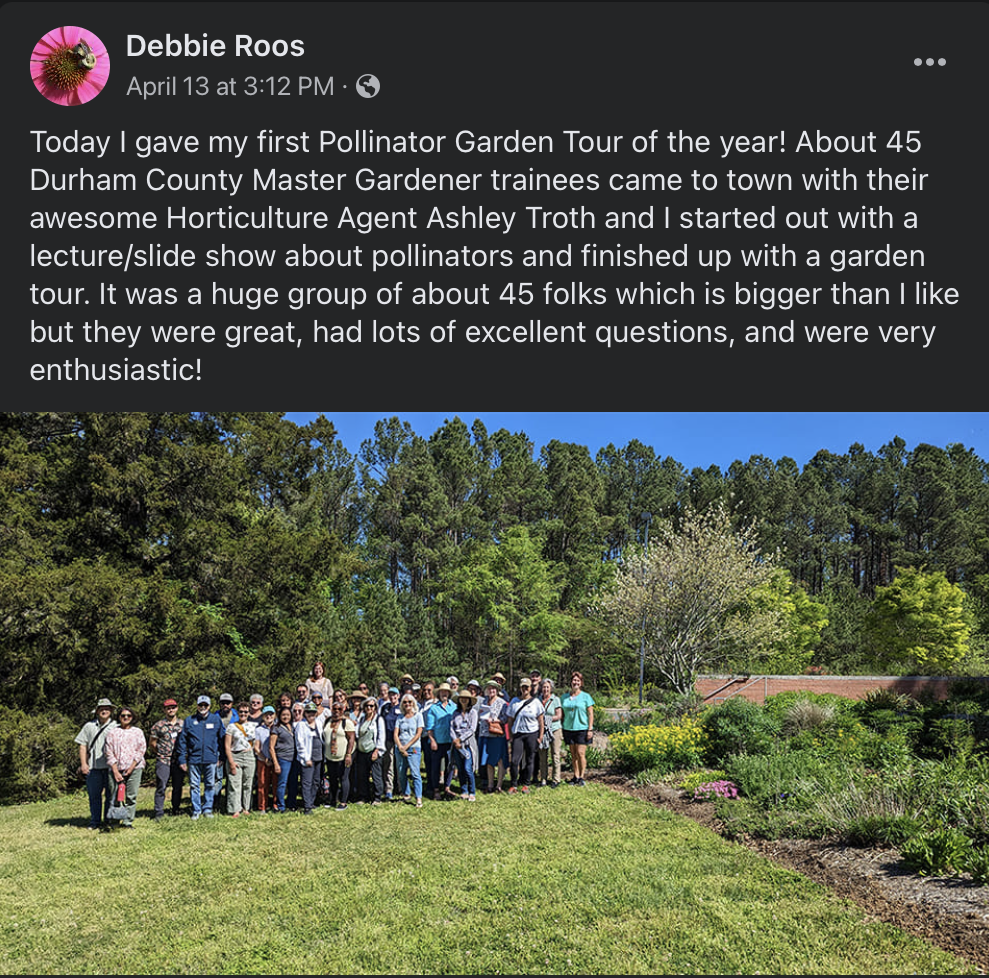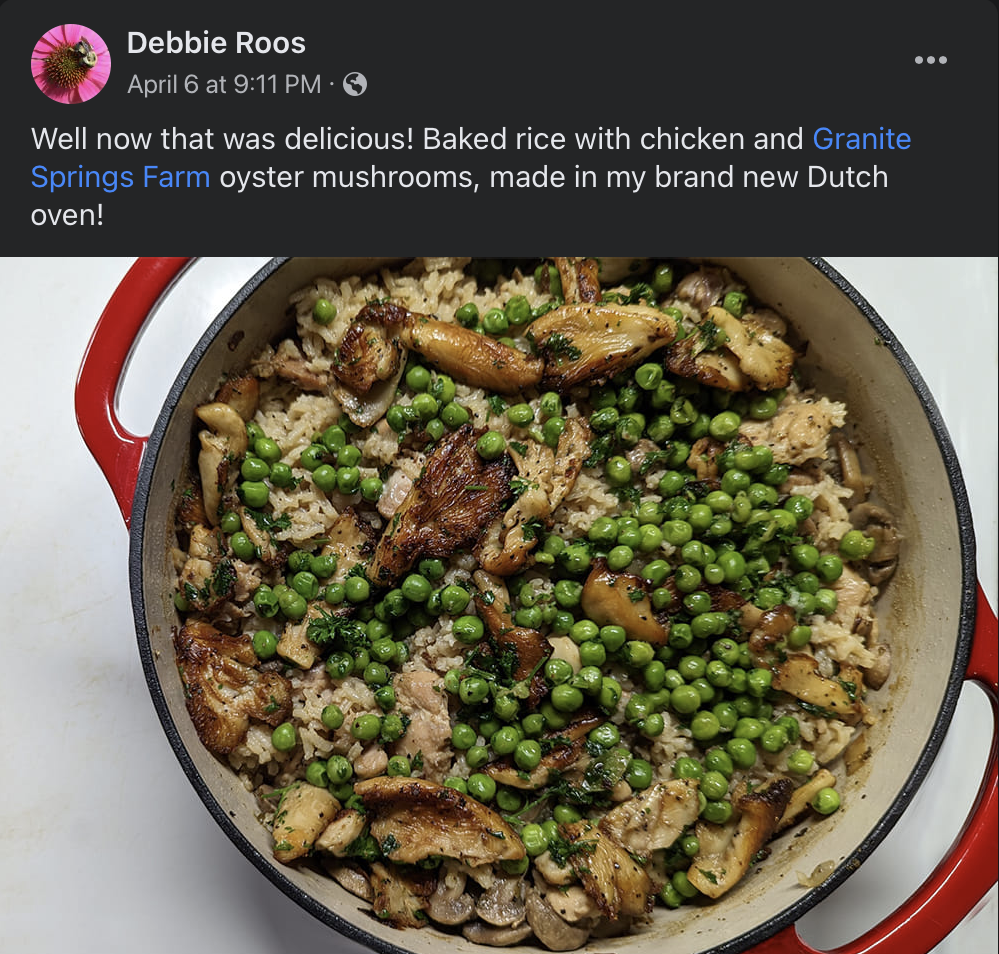Connecting Farms to Forks: A Conversation With Debbie Roos
go.ncsu.edu/readext?933172
en Español / em Português
El inglés es el idioma de control de esta página. En la medida en que haya algún conflicto entre la traducción al inglés y la traducción, el inglés prevalece.
Al hacer clic en el enlace de traducción se activa un servicio de traducción gratuito para convertir la página al español. Al igual que con cualquier traducción por Internet, la conversión no es sensible al contexto y puede que no traduzca el texto en su significado original. NC State Extension no garantiza la exactitud del texto traducido. Por favor, tenga en cuenta que algunas aplicaciones y/o servicios pueden no funcionar como se espera cuando se traducen.
Português
Inglês é o idioma de controle desta página. Na medida que haja algum conflito entre o texto original em Inglês e a tradução, o Inglês prevalece.
Ao clicar no link de tradução, um serviço gratuito de tradução será ativado para converter a página para o Português. Como em qualquer tradução pela internet, a conversão não é sensivel ao contexto e pode não ocorrer a tradução para o significado orginal. O serviço de Extensão da Carolina do Norte (NC State Extension) não garante a exatidão do texto traduzido. Por favor, observe que algumas funções ou serviços podem não funcionar como esperado após a tradução.
English
English is the controlling language of this page. To the extent there is any conflict between the English text and the translation, English controls.
Clicking on the translation link activates a free translation service to convert the page to Spanish. As with any Internet translation, the conversion is not context-sensitive and may not translate the text to its original meaning. NC State Extension does not guarantee the accuracy of the translated text. Please note that some applications and/or services may not function as expected when translated.
Collapse ▲ Debbie Roos has served N.C. Cooperative Extension for 24 years as the Sustainable Agriculture Agent in Chatham County. Her responsibilities include a variety of areas such as commercial vegetable production, organic production, alternative enterprises, local foods, pollinator conservation, forestry, and wildlife. As you can imagine, no two days are alike in Debbie’s world. Some days are spent on field work and farm visits and others are in the office writing articles and creating social media posts to promote local farms and pollinators or planning programs related to one of the many topics she covers. Some of the things Debbie loves most in her role include getting to be creative and constantly learn new things, working directly with farmers, and collaborating with others both in and out of Extension.
Debbie Roos has served N.C. Cooperative Extension for 24 years as the Sustainable Agriculture Agent in Chatham County. Her responsibilities include a variety of areas such as commercial vegetable production, organic production, alternative enterprises, local foods, pollinator conservation, forestry, and wildlife. As you can imagine, no two days are alike in Debbie’s world. Some days are spent on field work and farm visits and others are in the office writing articles and creating social media posts to promote local farms and pollinators or planning programs related to one of the many topics she covers. Some of the things Debbie loves most in her role include getting to be creative and constantly learn new things, working directly with farmers, and collaborating with others both in and out of Extension.
Debbie’s Local Food Landscape
“Chatham County has long enjoyed a reputation for its plethora of small organic farms,” Debbie shared. She actually learned about Chatham County as a graduate student in another state! “Our proximity to the urban centers of Carrboro, Chapel Hill, Durham, and Raleigh ensures farmer access to a strong network of local grower-only farmers’ markets and high-end restaurants.” There are four farmers’ markets in the county that also offer strong marketing opportunities for farmers. Chatham County is one of the fastest growing counties in the country and as such is building infrastructures and developing areas that have caused a loss of farmland. Debbie is working with others in her county on a new farmland preservation plan to try and meet future needs to ensure that agriculture remains strong in Chatham.
Debbie’s Primary Projects & Programs
 Twenty years ago, Debbie created a portal website – Growing Small Farms. It was likely the first Extension website created and is likely still the only one created by an agent. Debbie continues to create 100% of the content and shared that “it’s definitely a labor of love with over 500 pages.” She writes articles, shares photos, and develops educational materials for the site. “Farm Visit Snapshots” are farm profiles created for her site where she visits a farm, takes photos, and develops a short profile to share what was happening on the farm that day. The goal is to give the non-farming public a sort of behind the scenes look at what goes into farming the crops they see at a market. She also includes how the public can connect with that farmer such as through a market, CSA, restaurant, or website. Her goal is to start including videos in some of the snapshots and her first one was of ginger production – shooting the entire season from pre-sprouting in February all the way through harvest in the fall! Debbie also has a strong social media presence and enjoys engaging, inspiring, and educating clientele through it. You can find Debbie on instagram @debbie.roos and on facebook.
Twenty years ago, Debbie created a portal website – Growing Small Farms. It was likely the first Extension website created and is likely still the only one created by an agent. Debbie continues to create 100% of the content and shared that “it’s definitely a labor of love with over 500 pages.” She writes articles, shares photos, and develops educational materials for the site. “Farm Visit Snapshots” are farm profiles created for her site where she visits a farm, takes photos, and develops a short profile to share what was happening on the farm that day. The goal is to give the non-farming public a sort of behind the scenes look at what goes into farming the crops they see at a market. She also includes how the public can connect with that farmer such as through a market, CSA, restaurant, or website. Her goal is to start including videos in some of the snapshots and her first one was of ginger production – shooting the entire season from pre-sprouting in February all the way through harvest in the fall! Debbie also has a strong social media presence and enjoys engaging, inspiring, and educating clientele through it. You can find Debbie on instagram @debbie.roos and on facebook.
Another one of Debbie’s unique program creations includes her Pollinator Paradise Demonstration Garden which she started 15 years ago. The garden averages around 40 tours a year (plus workshops), and hundreds of visitors travel across the state to see it each year! Debbie shared that she calls it “‘pollinator tourism’ because these out-of-town visitors then spend money shopping, eating at local restaurants, and visiting local plant nurseries.” 
Debbie’s Final Thoughts
When asked what she thought the future of local foods in North Carolina looked like, Debbie said that as the state’s population grows, we need to preserve existing farmland but also actively encourage and recruit new farmers. There’s a strong interest in sustainably grown local foods and Extension Agents can support the farmers and promote local food in their communities.
Debbie’s Favorite Place to Buy Local and Favorite Recipes Using Local Food
 Debbie LOVEs shopping at her local farmers markets! Not only does she love to cook and try new recipes, she also loves to post photos of her meals on social media (#foodie) and tag all of the farms and markets where the ingredients were purchased. She’s had good response to her posts and feels like it’s a helpful way to bring more exposure to the farms and markets she’s supporting. “It’s extra special when I can make a meal that is almost entirely locally sourced!”
Debbie LOVEs shopping at her local farmers markets! Not only does she love to cook and try new recipes, she also loves to post photos of her meals on social media (#foodie) and tag all of the farms and markets where the ingredients were purchased. She’s had good response to her posts and feels like it’s a helpful way to bring more exposure to the farms and markets she’s supporting. “It’s extra special when I can make a meal that is almost entirely locally sourced!”


